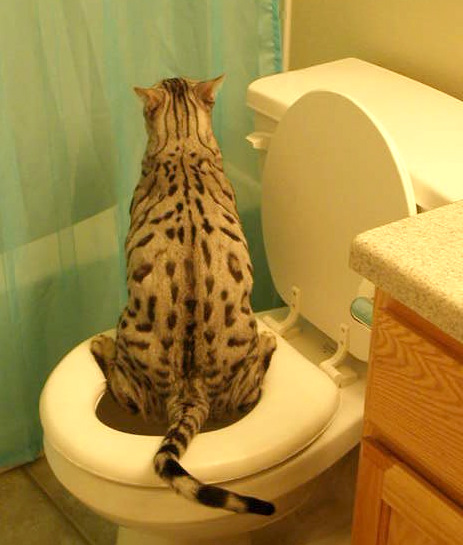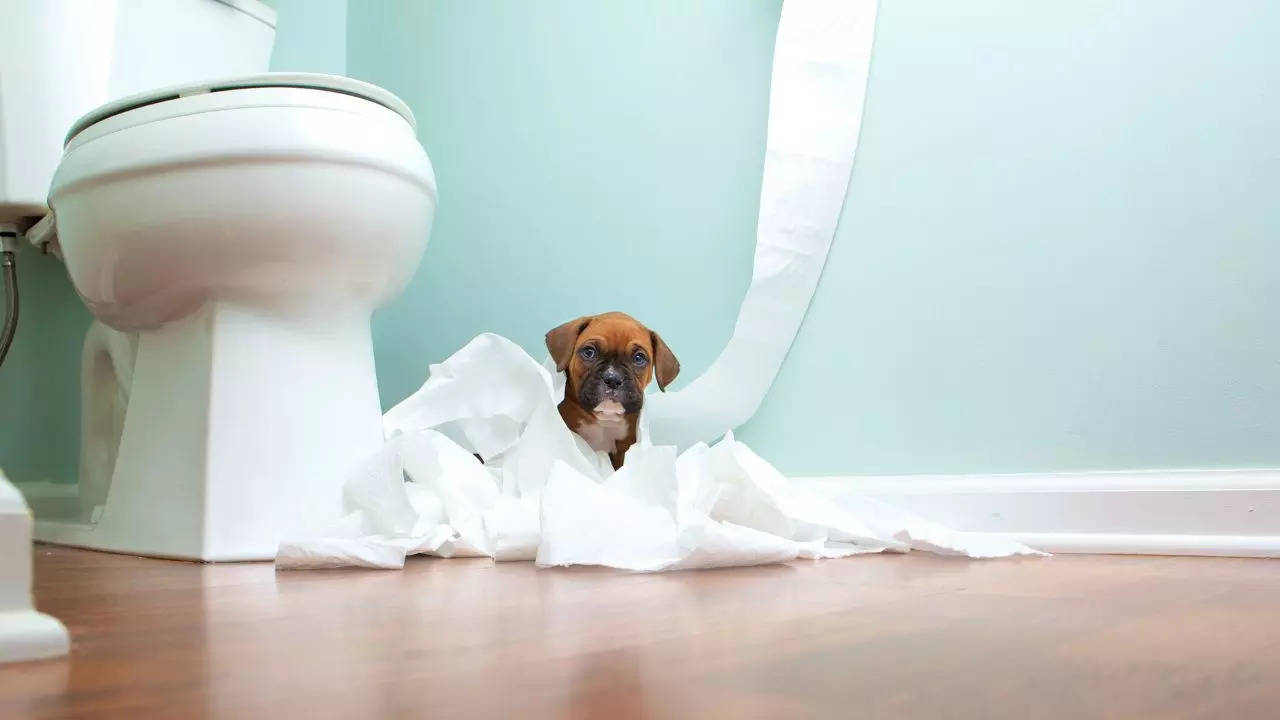How You Need to Never Dispose of Animal Waste Down the Toilet
How You Need to Never Dispose of Animal Waste Down the Toilet
Blog Article
This great article listed below in relation to Why you should never flush dog poop down the toilet is seriously fascinating. You should see for yourself.

When it concerns dealing with waste, especially animal waste, many people often consider the hassle-free option of flushing it down the toilet. Nevertheless, this apparently easy option can have major repercussions for the setting and public health. In this post, we'll discover why flushing pet waste down the toilet is a poor concept and offer alternative methods for correct disposal.
Introduction
Appropriate garbage disposal is vital for maintaining ecological sustainability and public health. While it might appear safe to flush animal waste down the toilet, it can lead to different problems, both for the setting and human well-being.
Dangers of flushing pet waste
Environmental impact
Flushing pet waste presents damaging bacteria and virus right into waterways, which can negatively affect water ecological communities. These microorganisms can contaminate water resources and damage aquatic life, interfering with fragile communities.
Public health issues
Animal waste has unsafe microorganisms such as E. coli and Salmonella, which can position major wellness risks to humans. Flushing animal waste down the toilet can contaminate water products, bring about the spread of conditions and infections.
Alternatives to flushing
Instead of purging animal waste down the commode, there are numerous alternative disposal techniques that are much more environmentally friendly and hygienic.
Composting
Composting animal waste is an environment-friendly way to dispose of it. By composting, organic matter is broken down right into nutrient-rich soil, which can be made use of to feed yards and plants.
Garbage dump disposal
Getting rid of animal waste in a land fill is an additional choice. While not as eco-friendly as composting, it is a safer alternative to flushing, as it avoids the contamination of water sources.
Pet garbage disposal systems
There are specific animal waste disposal systems readily available that safely and hygienically throw away animal waste. These systems commonly use enzymes to break down waste and remove smells.
Actions to correct animal garbage disposal
To make sure proper disposal of pet waste, follow these steps:
Scooping and getting waste
Routinely scoop and bag pet waste making use of eco-friendly bags. This avoids waste from polluting the environment.
Utilizing assigned waste bins
Dispose of bagged animal waste in designated waste bins, such as garden compost containers or garbage dump containers. Prevent flushing it down the bathroom in all prices.
Cleansing litter boxes and animal areas frequently
On a regular basis tidy litter boxes and pet dog areas to prevent the buildup of waste and microorganisms. Usage pet-safe cleansing items to keep hygiene.
Advantages of proper disposal methods
Taking on proper disposal techniques for animal waste offers several advantages:
Minimized environmental pollution
Appropriate disposal techniques reduce the threat of environmental pollution, safeguarding waterways and communities from contamination
Lessened threat of water contamination.
By preventing flushing pet waste down the bathroom, the danger of water contamination is considerably decreased, guarding public health.
Boosted cleanliness and health
Correct disposal techniques promote much better sanitation and health, creating a much safer atmosphere for both people and pets.
Final thought
In conclusion, flushing pet waste down the toilet is harmful to the atmosphere and public health. By taking on different disposal methods and adhering to website appropriate waste management practices, we can reduce the adverse effect of animal waste and add to a cleaner, much healthier world.
What To Do With Dog Poo – The Do's And Don'ts Of Disposing Of Faeces
Dog poo bins
Some councils provide dedicated dog waste bins in popular dog-walking areas that can take dog poo that has been bagged but you can legally dispose of dog waste in any public litter bin, as long as it is securely bagged. This also applies to your wheelie bin at home.
Do not flush
Water companies do not recommend flushing dog faeces down the toilet because certain parasites can survive the water processing treatment and are potentially harmful to humans. You should also never consider flushing dog poo that has been bagged down the toilet as the bags will not break down and instead create severe blockages in the sewage system.
In the woods
The Forestry Commission promotes a ‘stick and flick’ method for dealing with waste in the woods. This means finding a stick and using it to flick any poo from off the path so that it is out of the way of other walkers. You could also bury it as long as it is not in an area where there might be livestock.
Livestock
Parasites found in dog poo can be transmitted to livestock if they inadvertently eat infected faeces that has been left on grazing land. This could result in the death of sheep or abortion in cattle so you should always make sure you pick up your dog’s waste in fields where livestock could be present.

On a regular basis tidy litter boxes and pet dog areas to prevent the buildup of waste and microorganisms. Usage pet-safe cleansing items to keep hygiene.
Advantages of proper disposal methods
Taking on proper disposal techniques for animal waste offers several advantages:
Minimized environmental pollution
Appropriate disposal techniques reduce the threat of environmental pollution, safeguarding waterways and communities from contamination
Lessened threat of water contamination.
By preventing flushing pet waste down the bathroom, the danger of water contamination is considerably decreased, guarding public health.
Boosted cleanliness and health
Correct disposal techniques promote much better sanitation and health, creating a much safer atmosphere for both people and pets.
Final thought
In conclusion, flushing pet waste down the toilet is harmful to the atmosphere and public health. By taking on different disposal methods and adhering to website appropriate waste management practices, we can reduce the adverse effect of animal waste and add to a cleaner, much healthier world.
What To Do With Dog Poo – The Do's And Don'ts Of Disposing Of Faeces
Dog poo bins
Some councils provide dedicated dog waste bins in popular dog-walking areas that can take dog poo that has been bagged but you can legally dispose of dog waste in any public litter bin, as long as it is securely bagged. This also applies to your wheelie bin at home.
Do not flush
Water companies do not recommend flushing dog faeces down the toilet because certain parasites can survive the water processing treatment and are potentially harmful to humans. You should also never consider flushing dog poo that has been bagged down the toilet as the bags will not break down and instead create severe blockages in the sewage system.
In the woods
The Forestry Commission promotes a ‘stick and flick’ method for dealing with waste in the woods. This means finding a stick and using it to flick any poo from off the path so that it is out of the way of other walkers. You could also bury it as long as it is not in an area where there might be livestock.
Livestock
Parasites found in dog poo can be transmitted to livestock if they inadvertently eat infected faeces that has been left on grazing land. This could result in the death of sheep or abortion in cattle so you should always make sure you pick up your dog’s waste in fields where livestock could be present.

As a person who reads on Don't Flush Your Pets Poo Down The Loo, Vet Warns, I was thinking sharing that excerpt was worth the trouble. So long as you enjoyed reading our blog entry plz make sure you remember to pass it around. Thank you so much for going through it.
Call Today Report this page